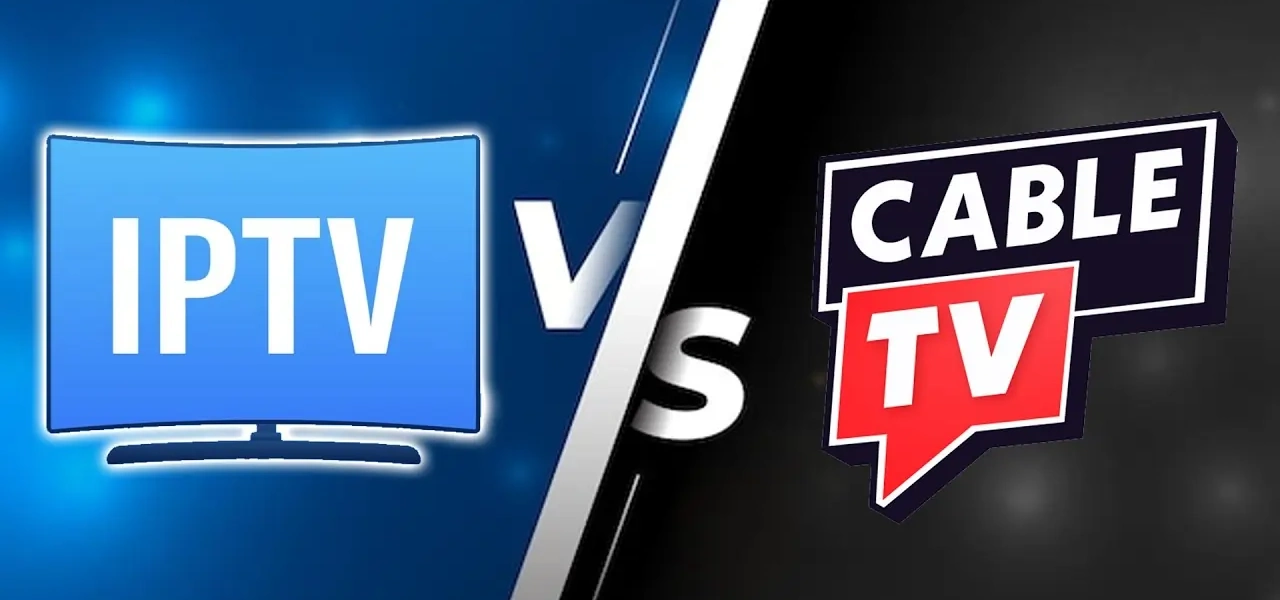
The rise of streaming services and internet-based television has offered more choices for viewers than ever before. Among the most popular options are IPTV (Internet Protocol Television) and traditional cable TV. But how do they compare? In this article, we’ll explore the differences between IPTV vs. cable TV, outlining the pros and cons of each to help you decide which suits your needs.
What is IPTV?
IPTV, or Internet Protocol Television, delivers television content via the internet rather than through traditional satellite or cable systems. It operates using a broadband connection to stream live TV, on-demand content, and recorded shows. IPTV provides flexibility and convenience as users can access content from various devices such as smartphones, tablets, and smart TVs, provided they have an internet connection.
Unlike cable TV, IPTV is not limited by physical infrastructure. This means that as long as you have a strong internet connection, IPTV services are available. Many users prefer IPTV due to the freedom it offers, allowing viewers to enjoy TV content anytime, anywhere. Additionally, IPTV services are often more customizable, offering packages that allow users to pick and choose channels according to their preferences.
What is Cable TV?
Cable TV, on the other hand, is the traditional form of television delivery that has been around for decades. It operates by transmitting TV signals through coaxial or fiber-optic cables directly to your television set. Cable TV providers offer a large number of channels, including local, national, and premium content.
While cable TV remains popular, it is facing stiff competition from IPTV and other internet-based services. Cable TV providers usually bundle channels together in packages, meaning viewers often end up paying for channels they may not watch. However, cable TV is generally known for its stable signal quality and availability in areas where high-speed internet might be unreliable or slow.
Key Differences Between IPTV vs. Cable TV
When comparing IPTV vs. cable TV, several key factors come into play that may influence your decision.
1. Content Delivery Method
The most significant difference between IPTV and cable TV is the method of content delivery. Cable TV relies on physical cables to transmit signals, while IPTV uses your internet connection to deliver content digitally. This difference in infrastructure makes IPTV more flexible, as it can be accessed through a variety of devices like smart TVs, tablets, and even smartphones.
Cable TV, on the other hand, can only be accessed through your television set. This limits mobility but ensures a stable connection, even in areas with weak or unreliable internet.
2. Channel Selection and Customization
One of the advantages of IPTV vs. cable TV is the customization options IPTV offers. Many IPTV providers allow users to build their own channel packages, meaning you pay for only the channels you want. With cable TV, packages are generally pre-set, and viewers often end up with a bundle of channels, many of which they may never watch.
IPTV also often provides a more extensive library of on-demand content, which can include international channels, niche programming, and exclusive content. Cable TV typically offers on-demand content but may not have the same level of flexibility or variety that IPTV services can provide.
3. Cost Efficiency
When it comes to pricing, there are clear differences between IPTV vs. cable TV. IPTV services are often seen as more cost-effective because of the flexibility in choosing channels and the wide range of plans available. IPTV users can avoid paying for unwanted channels, which reduces overall costs.
On the other hand, cable TV providers usually offer larger bundles that include many channels at a higher price. While some of these bundles might seem affordable at first glance, the inability to customize can lead to paying for channels that are not of interest to the viewer.
4. Internet Dependency
A crucial factor to consider in the IPTV vs. cable TV debate is internet dependency. Since IPTV operates through the internet, the quality of your IPTV service depends on the speed and stability of your internet connection. If you live in an area with a poor internet connection, you may experience buffering, lag, or interruptions in service.
Cable TV, in contrast, does not rely on an internet connection, making it more reliable in areas where internet service is weak or unavailable. For people in rural locations or regions with limited broadband options, cable TV may be the more dependable choice.
5. Technology and Features
In the comparison between IPTV vs. cable TV, IPTV often offers more advanced features. IPTV services typically provide the ability to pause, rewind, or fast-forward live TV, and many also offer cloud-based DVR systems that allow you to record shows and watch them later.
Cable TV providers also offer DVR systems, but they are often physical devices that are limited in storage space. Moreover, some cable TV services do not offer the same level of interactivity as IPTV, such as the ability to switch between devices seamlessly.
Pros of IPTV
-
- Flexibility: View content on multiple devices (TVs, smartphones, tablets).
-
- Customization: Tailor your channel lineup based on your preferences.
-
- Cost: Often cheaper with more varied pricing plans.
-
- Features: Offers advanced features like on-demand content, cloud DVR, and live TV controls.
Cons of IPTV
-
- Internet Dependency: Requires a strong and stable internet connection for smooth streaming.
-
- Buffering Issues: Poor internet speeds can lead to buffering or delays in content.
Pros of Cable TV
-
- Reliability: Offers a stable connection even in areas with weak internet service.
-
- Widespread Availability: Well-established infrastructure, particularly in rural areas.
-
- Channel Variety: Offers a wide range of channels, often including local networks.
Cons of Cable TV
-
- Cost: Often more expensive, especially for premium channel packages.
-
- Lack of Customization: Limited options for tailoring your channel lineup.
-
- Physical Limitations: Requires a television set and physical cable connection, limiting mobility.
Final Thoughts: IPTV vs. Cable TV
In the end, the choice between IPTV vs. cable TV comes down to your individual needs. If you prioritize flexibility, customization, and access to a wide range of on-demand content, IPTV might be the better option for you. However, if you live in an area with poor internet service or prefer the reliability of a traditional TV service, cable TV could be a more dependable choice.
Both options have their pros and cons, and understanding the key differences will help you make an informed decision. Whether you choose IPTV or cable TV, knowing what each has to offer will ensure that you get the most out of your television experience.
whatsapp sUPPORT
Ready to Answer All Your Queries



